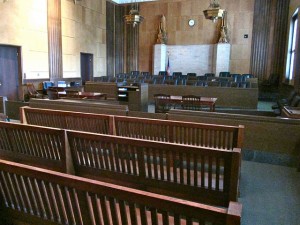 A great deal of our time is spent in the courtroom litigating Will Contest cases, because an individual decided to either:
A great deal of our time is spent in the courtroom litigating Will Contest cases, because an individual decided to either:
Quite often, a do-it-yourself Will is not crafted thoroughly enough, is vague about beneficiary designation of assets, or does not properly consider different scenarios that might occur in an individual’s particular situation. The end result is usually a litigation process that is not only costly and time-consuming, but also causes emotional turmoil for the bereaved.
This case occurred in California, and it is a particularly great example of why you should not do your own estate planning, why you should not do your own will, and why you should not try and save money clicking on the first website that shows up after you Google “how to do a will”. This case was discussed in the article “Unambiguous Will May Be Reformed Because of Mistake.”
Now, this isn’t a typical will contest case. A will contest is usually challenging testamentary capacity or saying that someone tried to coerce somebody to sign a will. This is a Will Contest (technically a “Will Construction” suit) over whether or not the testator intended to leave everything to charity, in a specific scenario that was not actually addressed in his will.
 In plain english, this case unfolded like this:
In plain english, this case unfolded like this:
After his death, the charities tried to probate the will, Mr. Duke’s heirs contested the will, and a long, drawn-out legal battle followed. The result in “In re Estate of Duke”, was that the California Supreme Court ruled in favor of the heirs.
There are two really interesting parts to this case:
What Irving Duke would have really wanted will forever be a mystery, because he did not get proper legal counsel to help him prepare a will and estate plan. Cases like this are intriguing, but also upsetting because typically a bereaved family and friends are left behind wondering what the testator would have really wanted, and an enormous amount of money is often spent on legal fees to have a court make that determination.
The pain and emotional turmoil a Will Contest creates is absolutely avoidable if an individual seeks out an estate planning attorney to do the job right the first time. If you or a loved one do not have a will or estate plan currently, or you have questions about your current Will, please do not hesitate to contact us.
Image Permissions:
Historic 9th District Court of Appeals by Catherine Read
Just Married By Matt Hecht
Romano & Sumner, PLLC
